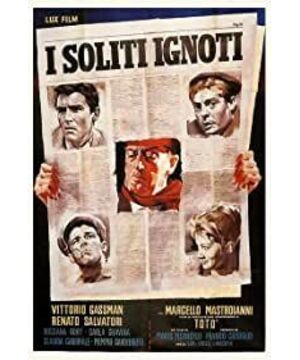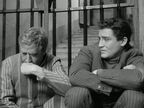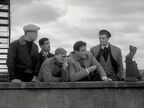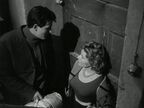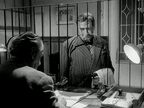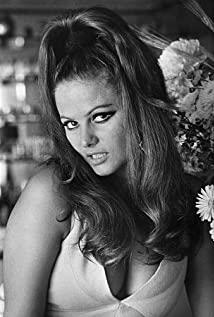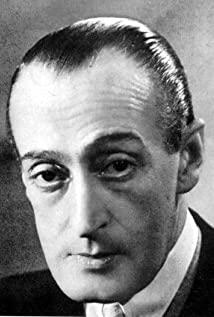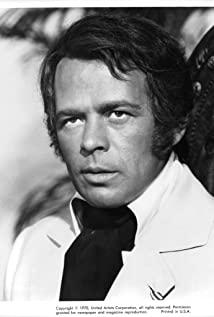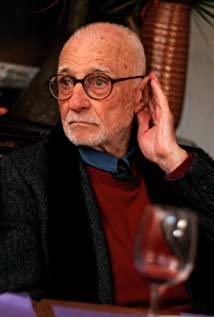In 1999, the famous Italian director Mario Monizelli attended the Montreal World Film Festival in Canada as a member of the jury. My interview with Mr. Monizelli, in addition to some Italian comedy styles, mainly focused on the director's most important work "Manhattan" 1958, which has produced a huge international reputation. The interview is in Italian and translated into English by the author himself.
Q: What does "Italian comedy" mean to you?
Answer: Italian comedy is a kind of comedy. The themes around it are generally very dramatic, sometimes even tragedy. The theme is tragic, but the perspective is comedy and funny. It is the Italians’ attitude towards reality and life that gave birth to Italian comedy. But going back to the source, it was not invented by us. It comes from classical literature, from Boccaccio, and dell'Arte (an Italian comedy from the sixteenth to eighteenth centuries). The themes of these comedies focus on poverty, hunger, suffering, aging, disease and death. Italians always enjoy it.
Q: Do you think this is still the case today?
Answer: Today, it is not exactly the same, or to some extent it is different. The fact is, there are no directors and actors who can shoot them anymore. Young directors even pay attention to stories that are not interesting but dramatic. The more dramatic and tragic, the stronger the irony and comedy effects. This is true for Italy, but it is not necessarily universal.
Q: Some film critics believe that classic Italian comedies of the 5's and 60's surpassed visual humor and Arlecchino's farce. But I think that "The Big Sale in Manhattan" still contains a lot of such comedy tricks.
Answer: Yes. On the other hand, not only in this film, but because in Italy, puppet comedians have a tradition of using rich expressions and body language. This tradition comes from the dell'Arte that I admire. In fact, if you pay attention, most Italian comedy movies rarely use close-ups and prefer to show the whole body. This is a lot like the American comedy of Chaplin and Keaton. Close-ups are usually more dramatic, but middle or long lenses are more suitable for comedy or satire. Of course this is because the actor expresses through the whole body and not just the face.
Q: Yes. I noticed that there are many mid-range and long-length mirrors in the "Man" play. And there are usually many characters appearing in the lens composition at the same time. What kind of effect is this to achieve?
Answer: Yes. Generally speaking, because in my movies, there is always a group of people trying to do something bigger than they think. But in the end it failed. So in Italian comedy, there is always a sad or at least a not so happy ending. This kind of unsatisfactory ending treatment seems to be the opposite of the usual meaning of comedy.
Q: The most interesting thing is that at the end of the film, Gassman's character, Peppe, accidentally found a job, but it was worse.
Answer: Yes.
Q: Is this movie a neo-realistic comedy?
Answer: Yes. Although the trend of neorealism had passed by then. It is more like a comedy that combines certain elements of realism, expressing poverty, expressing people doing their best to survive and expressing minor crimes. If it were today, it would be impossible for me to make such a movie. A group of people robbed the bank with drills and bombs? This is not realism.
Q: Is this one of the reasons why the characters in the film are so sympathetic? Because they are not real criminals.
Answer: No. These are people who are uneducated or just to support their families. All my movies are of this type.
Question: Many people also call this film a comical version of the French film "Men's Fight" shot by American director Dassin.
Answer: Yes. It was a very cold and realistic film. Quite professional, as Peppe has always said. So we did the same treatment, but what the role wanted to express was completely different. They acted in completely opposite ways.
Question: Toto's role was very professional in the scene where he demonstrated how to open the safe.
Answer: Because he is a professional safe thief. He has to be professional, while others are not.
Q: Speaking of Toto. The cast of this film is really a bit unusual. Is Claudia Cardina the first Italian movie? Does she not speak Italian?
Answer: Yes. In fact, she doesn't speak or understand Italian. She was born in Tunisia and only speaks French. And he was only 17 years old. very young. She later said that she only played a small role and didn't understand anything. I don't know what the character wants to show, what identity, but strictly follow my guidance. Of course, her dialogue is in French.
Q: Do you speak French?
Answer: Yes.
Question: She learned Italian later, and she seems to be married to an Italian?
Answer: Yes. She stayed in Italy and became an Italian actor. Her last name, Claudia, is from Italy.
Q: By the way, why are most Italian films recorded in post?
Answer: There are many reasons. The first is because Italian movies often use non-professional actors. For example, the Sicilian actor who plays the jealous brother in I Soliti Ignoti is not professional. He washes the dishes in a restaurant I frequent. The boxer is not a professional actor either. I think he is a bricklayer. Claudia was not a professional actor either. But this method of shooting casually grabbing people on the street was quite popular in Italy at that time. They can't recite lines, so they have to dub them later. In addition, you know that there are many dialects in Italy. An actor who plays a Sicilian may be neither a professional actor nor a Sicilian. So we have to give him a Sicilian accent. Claudia spoke French at the time and had to be dubbed.
Q: Did Marcello and Gassman dub themselves?
Answer: Yes, and Toto.
Q: This is Gassman's first comedy role. Are there any difficulties working with him?
Answer: No. It is much more pleasant to work with the same class actor than with the second class actor. The exchanges and discussions with them are very good. Gassman also read the script, and we discussed his role in depth together, and he quickly understood it. Just a few words can understand each other. You can start shooting in just one day or two rehearsals. On the contrary, for the same second-rate actor, you have to start from the beginning, over and over again.
Q: How about working with the great Toto? You seem to have worked with him many times before.
Answer: A great actor, although not very well-known outside of Italy, but in Italy, but a big star. He turned out to be a stage actor with a strong comedy expressiveness. He knows exactly what to do and how to do it. Even if an actor understands his role, he must still know how to interpret it through his body and expression. Many actors lack this ability, and Toto is a master.
Q: How long did this movie take?
Answer: 10 weeks.
Q: Is it mainly in the studio or on location?
Answer: Most of them are on location. Even many interior scenes are. There is only one interior scene in the studio, that is, the scene breaking through the wall. Because I can't destroy other people's homes! Filming on location is also a feature of Italian movies, especially at the time. Of course, this tradition has been preserved to this day.
Q: I mentioned this question because Fellini's "I Vitelloni" seemed to be shot in a studio.
Answer: Yes. Fellini always shoots in the studio, which makes him different. The vast majority of other directors are on location. Visconti, Desica, Demi...
Q: You also wrote a lot of movie scripts.
Answer: Seventy!
Question: Is there any trick to make a character stupid, arrogant, but sympathetic?
Answer: You have been to Italy, so you also know Italians. The Italians are like this. They are a little confused, but sympathetic. They will not be difficult to get along with nor violent. Even some people who have had a bad life, you will find that they are compassionate and happy. Scammers must do this, otherwise they can't cheat. The Italians are like that.
Q: You have been fortunate enough to work with many great Italian screenwriters. For example, Age and Scarpetti, and some photographers, like Gianni Di Venanzo, may have died too early.
Answer: Yes, he created a style of photography.
Question: Yes, this is what I want to ask you about, that kind of bleaching. Can you talk briefly?
Answer: The gray and white are also very dazzling and bright. Photography at that time used a lot of light. It is very complicated to shoot because of too much light. Gianni uses very little light. His shooting speed is very fast, and we can finish shooting on location with only a few people. His style really suits neorealism. He was one of the first photographers to adopt this approach. There are also Tonino Delli Colli and Guiseppe Rotunno. In fact, when they worked in the United States, they also taught Americans a lot.
Q: When did you shoot those desolate street scenes? Early morning?
Answer: No. There were few cars in the 1950s. Because Italy was very poor at the time. People walk or take public transportation. Especially in the outer areas of the city. Of course the city center is a bit busy, but there will still be no traffic jams. Italy has not recovered from the war and is devastated. That was the reality at the time.
Q: Was it taken in Rome?
Answer: Yes, in the suburbs. The characters in the film live on the outskirts of the city.
Question: There are a lot of people in the city center.
Answer: Yes, and the general social status is higher.
Q: These location scenes are very helpful for rendering the realistic style of the film. Ruins and broken walls, desolate and deserted. Of course, there are also several newly built buildings, a feeling that Italy is being revived.
Answer: Indeed. It was indeed the most active period in Italy in literature, film and theater.
Q: Is it exactly according to the script or is there some improvisation?
Answer: No, I never improvise. Because I don't know how to play. I like to plan everything in advance and like to take the time to prepare.
Q: I noticed the strong theme of imprisonment in the film. All characters are imprisoned. In the beginning, it was Cosimo and Peppe, and Marcello's wife was also in prison. Sicilian Ferribotte kept his sister at home. Are these things to express?
Answer: What I want to say is that it was like that back then. Everyone has to struggle for survival. A person who buys cigarettes on the black market will be put in prison. The photographer took the child at home, and the little old man lived by stealing on the bus. The crimes they committed were not serious. Many people were released after three to four months in prison, then stole, and then detained. So repeatedly.
Question: Back to the script. I think the most interesting line is when they saw Maarcello film about the safe, they asked Toto what he thought of the film. As a result, he replied: It's like a movie, but it's better than nothing.
Answer: This is to show lack of professionalism. The film was shot with a camera stolen from a flea market, but it continued to malfunction. In the end, the safe was blocked by a piece of dry clothes.
Question: Was that a "film-in-film" shot with 16MM?
Answer: Yes.
Q: When I watched this scene, I always wondered whether Scorsese was affected in his "Angry Bull" and "Back Streets"?
Answer: Scorsese knows a lot about Italian movies, including Coppola and Pacino. These Italian-Americans have a deep understanding of neorealism. Even more than us.
Q: Another very interesting thing is that at the end, they drilled the wrong wall and ended up in the kitchen. But I seem to be satisfied with the pizza and peas in the refrigerator. This scene even made me feel a little hungry.
Answer: Yes. The refrigerator becomes a safe!
Q: It's funny because you can realize the poor thief, because pasta is not the food of the rich. The humor in this scene is culturally specific, because non-Italians may not understand the meaning of pasta and peas. You also asked a few people to discuss their many benefits, making the comedy effect even stronger.
Answer: Yes. This is a big meal. Even though we have all eaten it, only the poor can understand the meaning of this meal.
They went to prison again-the kitchen. You also used farce in this scene. When the janitor was asked to look at the cat on the phone, they threw the cat out.
Q: Have you encountered any problems with Italian film censorship?
Answer: I have encountered it many times. But before this movie.
Question: Do you think comedies have more room for social criticism than general dramas?
Answer: Of course! Real social criticism can only be expressed in comedy. Because if you laugh at suffering, disease, or poverty, you can understand them deeply. The purpose of the movie is to understand the reality around you from the perspective of a humorist.
Q: I think the most recent one of the same type of works is "Life is Beautiful" by Bellini.
Answer: Yes. Like I said, terrible stories can still make people laugh. Although it is difficult, once it is done, it is extremely profound!
Q: Are there any taboos in shooting comedy?
Answer: No. If your vision is sharp enough, you can shoot any subject.
Q: Why did jazz appear?
Answer: This is the first time that jazz music has been added to an Italian movie. That musician is called Umiliani. Hired to compose music. He also writes for other musicians, but does not sign. This is the first time he signed his name.
Q: I haven't watched it yet. By the way, Louis Mahler remakes "The Manhattan Sale. Have you seen it?"
Answer: Too bad. They made two mistakes. First of all, the background is Atlantic City (in fact, San Francisco). Such a place where rich people gather is not suitable for filming such styles of movies. Second, Bob Fosse has good music, but the character is not suitable for this style. The effect is very bad.
Q: There seems to be a sequel. I Soliti Ignoti vent-anni dopo (1987).
Answer: It was directed by Amanzao Todini, the assistant of the film. It doesn't seem to be a success. Because after 20 years, the nature of the crime in the story has changed. Revolver shooting, bloodshed and bombs. Too violent! Lack of humorous expression space. It's not that you can't shoot, but the style is definitely different.
Question: Mr. Moricheni, you have such a glorious and long-lasting directorship. Which one is the most proud of you?
Answer: It's not easy to say, because sometimes you are the proudest when your movie has achieved great success in film reviews and box office. Sometimes, you love the film for the opposite reason. You love this movie because you worked hard for it, but it did not attract the audience. This is like a failed son. Sometimes, the film is very original and unprecedented. You will also feel very proud. Therefore, there are a few batteries that seem to meet the standards, but I can't say the most. My Friends, 1982, I don’t know if you have seen it. But it was indeed a sensational movie that created the style of Italian Tuscan comedy. Or, my favorite movie: The Incredible Army of Brancaleone, 1965. The story takes place in the Middle Ages, the Middle Ages of poverty, suffering and ignorance. The film was also very successful in Italy. The professors even discussed the movie with me. The students liked the tone of the movie, but the professor didn't like it, which caused controversy. At that time, I traveled all over Italy to discuss this film with others, and it was really satisfying.
Q: What do you think of today's Italian director? People like Nanni Moretti, Roberto Benigni, Maurizio Nichetti?
Answer: They are good, but not many. Benigni is great because he is a versatile. Screenwriter, director and acting... this is very difficult to do. Although he is not a great director, he has achieved great success. He is a good actor and a good screenwriter assistant, Vincenzo Cerami.
Q: How do you stay young?
Answer: A good health! In fact, I don’t have any restrictions on the scope of my diet, but I have to be in moderation. In addition, it is also good luck.
Q: Is it your first time in Montreal?
Answer: The second time. I came here with my work (Speriamo che sai Femmina, 1986) 12 years ago. It was a very successful film in Italy. Actors from Italy, Norway, France and the United Kingdom participated in the filming. All are dubbing. We Italians are good at this! Ha ha!
Q: Are you still working now?
Answer: Yes. Gambling prevails in Italy now. TV, solitaire, football, all can be used for gambling! So I am making a movie that reflects the gambling trend in Italy in recent years. Oh, it is already a huge industry!
Q: The same goes for Quebec here. Moreover, most gamblers are people who cannot make ends meet, and the social response is very bad.
Answer: Yes, mainly the poor. And it has a great impact on those who are studying trade and going to school. They will think, if lucky numbers can change lives, why should I learn crafts?
Question: Haha, this sounds like a comedy too!
Answer: Yes, of course. I only shoot comedies.
View more about Big Deal on Madonna Street reviews


